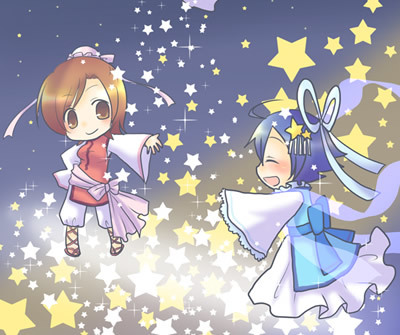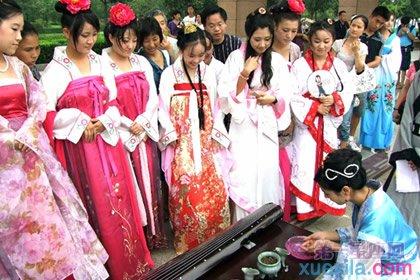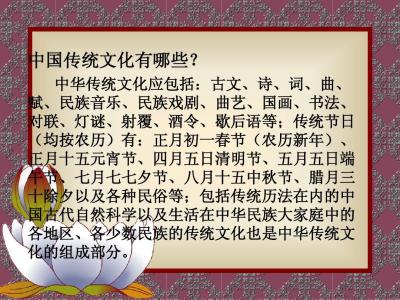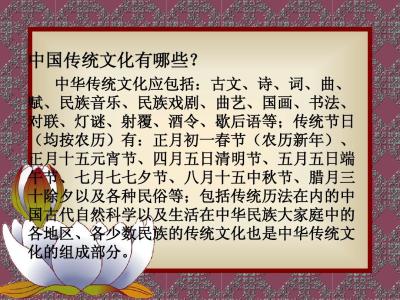农历七月初七是我国汉族的传统节日七夕,七夕节是牛郎织女会合的日子。以下是小编为大家整理推荐介绍七夕节的高中优秀作文,欢迎大家参阅学习。
介绍七夕的高中英语作文篇一
The Double Seventh Festival, on the 7th day of the 7th lunar month, is a traditional festival full of romance. It often goes into August in the Gregorian calendar.
This festival is in mid-summer when the weather is warm and the grass and trees reveal their luxurious greens. At night when the sky is dotted with stars, and people can see the Milky Way spanning from the north to the south. On each bank of it is a bright star, which see each other from afar. They are the Cowherd and Weaver Maid, and about them there is a beautiful love story passed down from generation to generation.
Long, long ago, there was an honest and kind-hearted fellow named Niu Lang (Cowhand)。 His parents died when he was a child. Later he was driven out of his home by his sister-in-law. So he lived by himself herding cattle and farming. One day, a fairy from heaven Zhi Nu (Weaver Maid) fell in love with him and came down secretly to earth and married him. The cowhand farmed in the field and the Weaver Maid wove at home. They lived a happy life and gave birth to a boy and a girl. Unfortunately, the God of Heaven soon found out the fact and ordered the Queen Mother of the Western Heavens to bring the Weaver Maid back.
With the help of celestial cattle, the Cowhand flew to heaven with his son and daughter. At the time when he was about to catch up with his wife, the Queen Mother took off one of her gold hairpins and made a stroke. One billowy river appeared in front of the Cowhand. The Cowhand and Weaver Maid were separated on the two banks forever and could only feel their tears. Their loyalty to love touched magpies, so tens of thousands of magpies came to build a bridge for the Cowhand and Weaver Maid to meet each other. The Queen Mother was eventually moved and allowed them to meet each year on the 7th of the 7th lunar month. Hence their meeting date has been called "Qi Xi" (Double Seventh)。
介绍七夕的高中英语作文篇二
The Double Seventh Festival, on the 7th day of the 7th lunar month, is a traditional festival full of romance. It often goes into August in the Gregorian calendar. This festival is in mid-summer when the weather is warm and the grass and trees reveal their luxurious greens. At night when the sky is dotted with stars, and people can see the Milky Way spanning from the north to the south. On each bank of it is a bright star, which see each other from afar. They are the Cowherd and Weaver Maid, and about them there is a beautiful love story passed down from generation to generation.
Long, long ago, there was an honest and kind-hearted fellow named Niu Lang (Cowhand)。 His parents died when he was a child. Later he was driven out of his home by his sister-in-law. So he lived by himself herding cattle and farming. One day, a fairy from heaven Zhi Nu (Weaver Maid) fell in love with him and came down secretly to earth and married him. The cowhand farmed in the field and the Weaver Maid wove at home. They lived a happy life and gave birth to a boy and a girl. Unfortunately, the God of Heaven soon found out the fact and ordered the Queen Mother of the Western Heavens to bring the Weaver Maid back. With the help of celestial cattle, the Cowhand flew to heaven with his son and daughter.
At the time when he was about to catch up with his wife, the Queen Mother took off one of her gold hairpins and made a stroke. One billowy river appeared in front of the Cowhand. The Cowhand and Weaver Maid were separated on the two banks forever and could only feel their tears. Their loyalty to love touched magpies, so tens of thousands of magpies came to build a bridge for the Cowhand and Weaver Maid to meet each other. The Queen Mother was eventually moved and allowed them to meet each year on the 7th of the 7th lunar month. Hence their meeting date has been called "Qi Xi" (Double Seventh)。
介绍七夕的高中英语作文篇三
The Double Seventh Festival on the 7th day of the 7th lunarmonth is a traditional festival full of romance. It often goes into August in the Gregorian calendar.
This festival is in mid-summer when the weather is warm and the grass and trees reveal their luxuriousgreens. At night when the sky is dotted with stars and people can see the Milky Way spanning from the north to the south. On each bank of it is a bright star which see each other from afar. They are the Cowherd and Weaver Maid and about them there is a beautiful love story passed down from generation to generation.
Long long ago there was an honest and kind-hearted fellow named Niu Lang (Cowhand). His parents died when he was a child. Later he was driven out of his home by his sister-in-law. So he lived by himself herding cattle and farming. One day a fairy from heaven Zhi Nu (Weaver Maid) fell in love with him and came down secretly to earth and married him. The cowhandfarmed in the field and the Weaver Maid wove at home. They lived a happy life and gave birth to a boy and a girl. Unfortunately the God of Heaven soon found out the fact and ordered the Queen Mother of the Western Heavens to bring the Weaver Maid back.
With the help of celestial cattle the Cowhand flew to heaven with his son and daughter. At the time when he was about to catch up with his wife the Queen Mother took off one of her gold hairpins and made a stroke. One billowyriver appeared in front of the Cowhand. The Cowhand and Weaver Maid were separated on the two banks forever and could only feel their tears. Their loyaltyto love touched magpies so tens of thousands of magpies came to build a bridge for the Cowhand and Weaver Maid to meet each other. The Queen Mother was eventually moved and allowed them to meet each year on the 7th of the 7th lunar month. Hence their meeting date has been called "Qi Xi" (Double Seventh).
Scholars have shown the Double Seventh Festival originated from the Han Dynasty (206 BC-AD220). Historical documents from the Eastern Jin Dynasty (AD371-420) mention the festival while records from the Tang Dynasty (618-907) depict the grand evening banquetof Emperor Taizong and his concubines. By the Song (960-1279) and Yuan (1279-1368) dynasties special articles for the "Qi Xi" were seen being sold on markets in the capital. The bustling markets demonstrated the significance of the festival.
Today some traditional customs are still observed in ruralareas of China but have been weakened or diluted in urban cities. However the legend of the Cowhand and Weaver Maidhas taken root in the hearts of the people. In recent years in particular urban youths have celebrated it as Valentine's Day in China. As a result owners of flower shops bars and stores are full of joy as they sell more commodities for love.
介绍七夕的高中英语作文篇四
The Double-Seventh Day refers to the seventh day of the seventh month on the Chinese lunar calendar. The day is not as well known as many other Chinese festivals. But almost everyone in China young and old is very familiar with the story behind this festival.
A long long time ago there was a poor cowherd Niulang. He fell in love with Zhinu “the Girl Weaver". Virtuous and kind she was the most beautiful being in the whole universe. Unfortunately the King and Queen of Heaven were furious finding out that their granddaughter had gone to the world of Man and taken a husband. Thus the couple was separated by a wide swollen river in the sky and can only meet once a year on the seventh day of the seventh lunar month.
The poor couple of Niulang and Zhinu each became a star. Niulang is Altair and Zhinu is Vega. The wide river that keeps them apart is known as the Milky Way. On the east side of the Milky Way Altair is the middle one of a line of three. The end ones are the twins. To the southeast are six stars in the shape of an ox. Vega is to the west of the Milky Way; the star around her form in the shape of a loom. Every year the two stars of Altair and Vega are closest together on the seventh day of the seventh lunar month.
This sad love story has passed down from generation to generation. It is well known that very few magpies are seen on the Double-Seventh Day. This is because most of them fly to the Milky Way where they form a bridge so that the two lovers might come together. The next day it is seen that many magpies are bald; this is because Niulang and Zhinu walked and stood too long on the heads of their loyal feathered friends.
In ancient times the Double-Seventh Day was a festival especially for young women. Girls no matter from rich or poor families would put on their holiday best to celebrate the annual meeting of the cowherd and the Girl Weaver. Parents would place an incense burner in the courtyard and lay out some fruit as offerings. Then all the girls in the family would kowtow to Niulang and Zhinu and pray for ingenuity.
In the Tang Dynasty about 1000 years ago rich families in the capital city of Chang'an would set up a decorated tower in the courtyard and name it Tower of Praying for Ingenuity. They prayed for various types of ingenuity. Most girls would pray for outstanding sewing or cooking skills. In the past these were important virtues for a woman.
Girls and women would gather together in a square and look into the star-filled night sky. They would put their hands behind their backs holding needle and thread. At the word “Start” they would try to thread the needle. Zhinu the Girl Weaver would bless the one who succeeded first.
The same night the girls and women would also display carved melons and samples of their cookies and other delicacies. During the daytime they would skillfully carve melons into all sorts of things. Some would make a gold fish. Others preferred flowers still others would use several melons and carve them into an exquisite building. These melons were called Hua Gua or Carved Melons.
The ladies would also show off their fried cookies made in many different shapes. They would invite the Girl Weaver to judge who was the best. Of course Zhinu would not come down to the world because she was busy talking to Niulang after a long year of separation. These activities gave the girls and women a good opportunity to show their skills and added fun to the fesstival.
Chinese people nowadays especially city residents no longer hold such activities. Most young women buy their clothes from shops and most young couples share the housework.
The Double-Seventh Day is not a public holiday in China. However it is still a day to celebrate the annual meeting of the loving couple the Cowherd and the Girl Weaver. Not surprisingly many people consider the Double-seventh Day the Chinese Valentine's Day.
猜你感兴趣:
1.七夕的习俗作文400字
2.关于七夕的作文
3.七夕的作文600字6篇
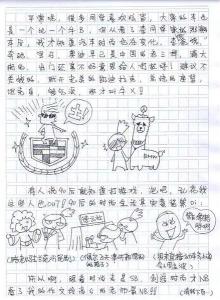
4.七夕情人节作文400字
5.中国七夕节的习俗作文
 爱华网
爱华网